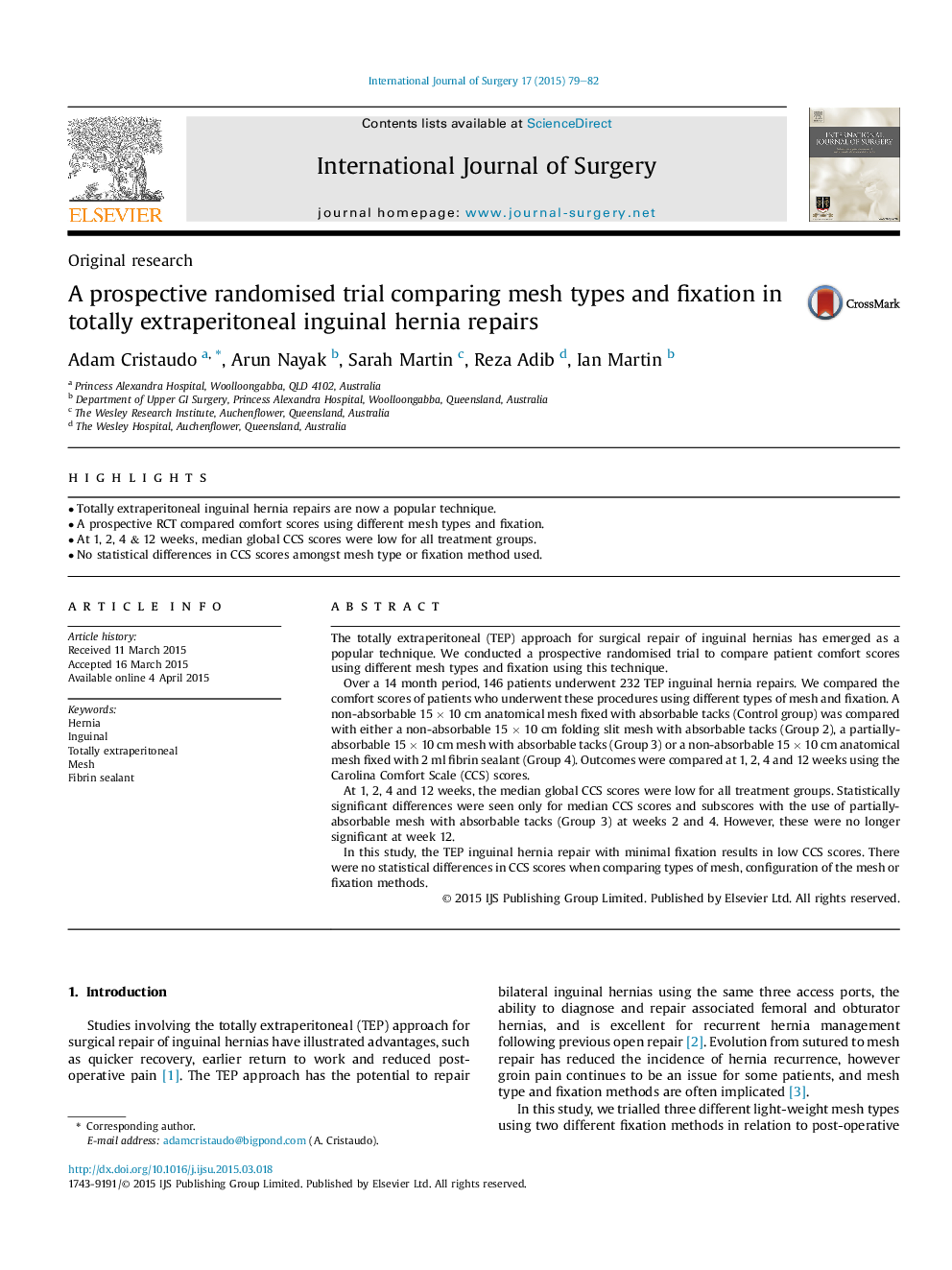| Article ID | Journal | Published Year | Pages | File Type |
|---|---|---|---|---|
| 4286028 | International Journal of Surgery | 2015 | 4 Pages |
•Totally extraperitoneal inguinal hernia repairs are now a popular technique.•A prospective RCT compared comfort scores using different mesh types and fixation.•At 1, 2, 4 & 12 weeks, median global CCS scores were low for all treatment groups.•No statistical differences in CCS scores amongst mesh type or fixation method used.
The totally extraperitoneal (TEP) approach for surgical repair of inguinal hernias has emerged as a popular technique. We conducted a prospective randomised trial to compare patient comfort scores using different mesh types and fixation using this technique.Over a 14 month period, 146 patients underwent 232 TEP inguinal hernia repairs. We compared the comfort scores of patients who underwent these procedures using different types of mesh and fixation. A non-absorbable 15 × 10 cm anatomical mesh fixed with absorbable tacks (Control group) was compared with either a non-absorbable 15 × 10 cm folding slit mesh with absorbable tacks (Group 2), a partially-absorbable 15 × 10 cm mesh with absorbable tacks (Group 3) or a non-absorbable 15 × 10 cm anatomical mesh fixed with 2 ml fibrin sealant (Group 4). Outcomes were compared at 1, 2, 4 and 12 weeks using the Carolina Comfort Scale (CCS) scores.At 1, 2, 4 and 12 weeks, the median global CCS scores were low for all treatment groups. Statistically significant differences were seen only for median CCS scores and subscores with the use of partially-absorbable mesh with absorbable tacks (Group 3) at weeks 2 and 4. However, these were no longer significant at week 12.In this study, the TEP inguinal hernia repair with minimal fixation results in low CCS scores. There were no statistical differences in CCS scores when comparing types of mesh, configuration of the mesh or fixation methods.
